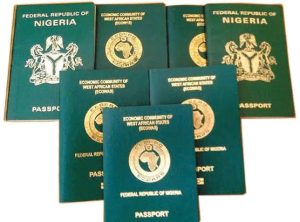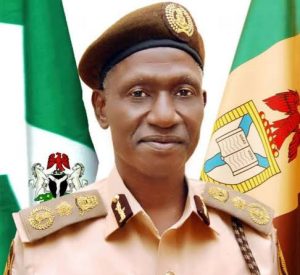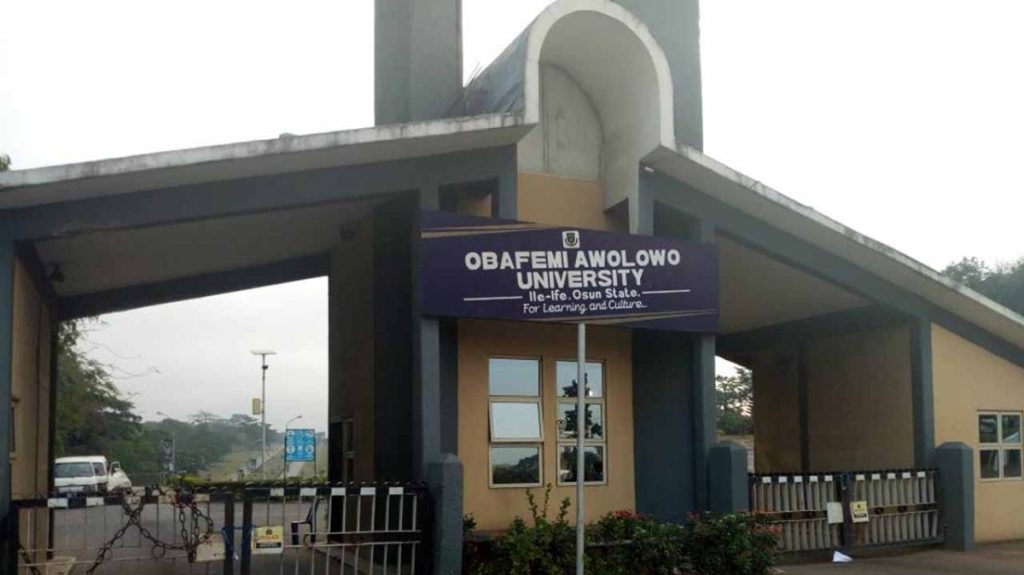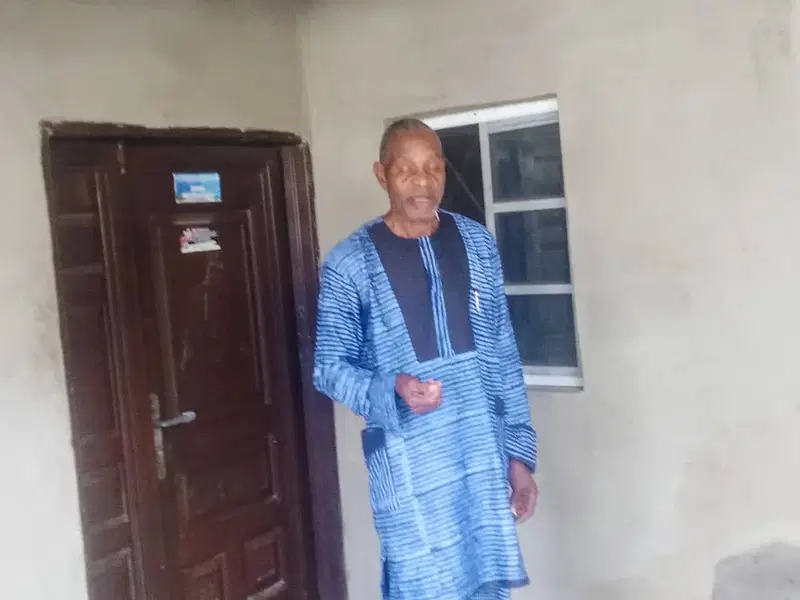The Nigeria’s borders are very massive covering 5,330 kilometres and with a total of an estimated 1,490 illegal entry points into the country. How is the entire workforce of Nigerian Immigration Service (NIS) of not more than 25,000 officers coping with the security of these borders? Acting CGI of Immigration, Isah Jere Idris, answers this and other and-then-what questions about the NIS operations during a virtual interaction with Platforms Africa and other reputable media organisations. Here is his point-by-point response.
Passport tracking system
As part of the efforts to improve the process of issuance and collection of passports, the NIS has introduced a passport tracking system. With the system, applicants can now trace the status of their passports from the comfort of their homes.
What applicants just need to do is to log on to www.trackimmigration.gov.ng and upload their details. This system is already in place and Nigerians should take advantage of it.
Passport issuance. The acting CGI lamented the increasing number of Nigerians seeking override of the newly introduced appointment system for passport issuance, describing it as an abuse of system. He said the appointment system was introduced to reduce physical interface with personnel, overcrowding and arbitrariness, which he noted have all consistently combined to promote corruption and abuse.
However, rather than wait for the appointment date for capturing, the acting CGI frowned that many Nigerians are seeking to jump the process by turning in myriads of requests for waiver for all conceivable reasons. He said the NIS, based on the directive of the Minister of Interior, Ogbeni Rauf Aregbesola, has tried to ensure the sacrosanctity of the three-week duration for passport renewal and six-week duration for new applications.
READ ALSO: 478,650 Nigerian Passport Booklets Distributed in 4 Months – Ag. NIS CG
Use New Form or Suffer Residency Rejection, Irish immigration to Applicants
Ex-Immigration CG, Babandede, Is 1st Nigerian To Bag Spanish Highest Honour
EXCLUSIVE: Buhari Declines Ministerial Consent For ExxonMobil $1.6bn Assets’ Sale To Seplat

Possible reasons for delay: The acting CGIS said there are possible reasons for delay in the processing of passports applications and that these could be as a result of the integration of data between NIS and the National Identity Management Commission (NIMC), which also in turn integrate with the BVN data of applicants. He said the single data integration policy of the government is aimed at enhancing the nation’s security architecture to protect the identity of Nigerians.
“Apart from this, because passports confer on holders the integrity of a nation, the integrity of producing such documents should also not be compromised. So we must verify the addresses of the applicants and there is a company that already does that for us. We must confirm the authenticity of the claims before we proceed for production,” he said.
Solutions: Apart from improving the appointment system, the acting CGIS listed other novel policies already introduced and those yet to be deployed by the agency. These measures are as follows:
Introduction of passport tracking system: As part of the efforts to improve the process of issuance and collection of passports, the NIS has introduced a passport tracking system. With the system, applicants can now trace the status of their passports from the comfort of their homes.
“What applicants just need to do is to log on to www.trackimmigration.gov.ng and upload their details. This system is already in place and Nigerians should take advantage of it,” the acting CGI said.
NIN validation by applicants: The acting CGI said within the next four weeks NIS will deploy a new system that will enable applicants to validate their national identity numbers before they can proceed to make payment for passports online and to book appointments for capturing.
“Most delays are usually caused by the NIN validation problems and what we want to do now will allow individual applicants to first of all verify and validate their NIN and only upload validated NIN before they can pay for passports. By doing that, we would have successfully tackled the issue of delay from other partners which we don’t have control over,” he said.

Expedited Passport Issuance: The acting CGI also explained that for genuine medical reasons and other exceptional emergencies NIS takes the pain to override appointments for applicants.
Introduction of Alert System: The acting CGI said NIS is also working on notifying Nigerians whenever their passports have only six months to expire. “Just like the driver licenses, NIS is planning to introduce an alert system as soon as passports have about six months to expire. This is how much we are introducing technology to ease the stress.
Opening front offices: The Acting CGI said more passport offices are being opened across the country with one already in place in Sagamu, Ogun State, and others being planned for Ilesa in Osun State, Oyo town in Oyo State, Daura in Katsina State, and Zaria in Kaduna State, among others.
Diaspora Matters: The acting CGI noted that booklets are currently being shared both locally and to the embassies of Nigeria globally so that the Nigerians in diaspora can also be attended to. He, however, complained that access to forex has been difficult for the company handling the passport production project, and that the company only source for forex from markets like other businesses and that the process has been cumbersome and discouraging.
Domestication of passport production: He said based on the directive of President Muhammadu Buhari, the ultimate goal of the NIS is to domesticate passport production by providing additional job opportunities for Nigerians and improving the country’s economy. Mr Idris said efforts have reached an advanced stage to achieve that.
“But you know we cannot wait until we complete the domestication process before we commence passport issuance. So we have to continue with the existing system until we are completely through with the local production system,” he said.
Passport expiration
The acting CGI, however, advised Nigerians not to wait till their passports validity have expired before they apply for renewal. He said Nigerians are in the habit of waiting for the last minute before they do what they know they will eventually do.
On border security, the acting CGI said the major responsibility of NIS is border security without overlooking the importance of passport issuance as another mandate of the agency. However, he noted that Nigeria’s borders are very massive covering 5,330 kilometres and with a total of an estimated 1,490 illegal entry points into the country.
Yet, he added, the entire workforce of NIS is not more than 25,000. “So it is increasingly difficult for us to adequately man the border lines. That is why we have continued to appeal to the government to increase our budgetary allocations and also grant us approval for recruitments to reinforce the workforce. We thank the President and the team for the approval and the recruitment we carried out in 2021, but the reality is that we need more personnel to achieve effective border management and control,” he said.
Measures in place: The acting CGI listed measures by the NIS to improve the border security in Nigeria and arrest the influx of illegal migrants in the country. These measures, according to him, include;
Improved technology: The acting CGI said the best way to man the vast border points in Nigeria is the deployment of technology and that with NIS technology building already in place, efforts have reached an advanced stage to launch electronic border management systems across 84 border locations. “It is through this technology that we can monitor our borders real time,” he said.
Increased border patrol: The acting CGI said the border patrol system is also being enhanced to ensure close and improved monitoring with the available personnel.
Raids: He said the NIS carries out raids regularly and that many irregular residents in Nigeria are regularly picked up and eased out. He, however, cautioned Nigerians that not every non-Nigerian seen in Nigeria is illegal migrants, adding that ECOWAS protocol which Nigeria is a signatory to also grants citizens of member-states freedom but that the freedom also comes with conditions. “So it takes experts like our men to determine if a non-Nigerian is an illegal resident or not. Some of them have their papers that permit them to stay for a certain period based on the protocols we are committed to as a nation. “We carry out raids and most times we don’t announce this for some diplomatic reasons. But I can assure Nigerians that we are doing our best to ensure that only legal migrants live and work in Nigeria. Just two days ago, three illegal Sudanese residents in Nigeria were picked up. So we are not resting,” he said.





